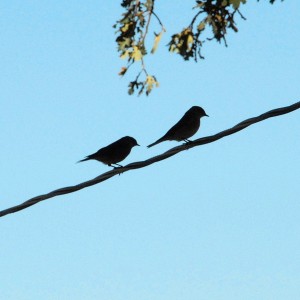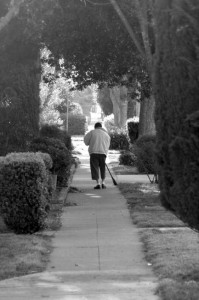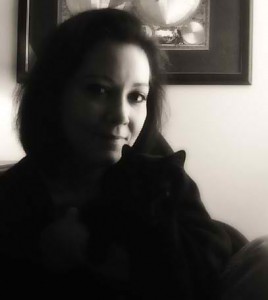 It has been one of the most humbling yet uplifting times of my life.
It has been one of the most humbling yet uplifting times of my life.
And the word that keeps coming up?
Grace.
It is a word with several meanings.
One is connected to being “graceful,” the opposite of being clumsy.
Another is related to being “gracious,” which I think of as being kind, polite, warm.
Yet another is the blessing that is said before a meal, sometimes recited from memory, sometimes made up in the moment.
There is also the mystical idea of grace. Growing up in a fairly religious family, and taking theology classes in college, I heard phrases like “state of grace” and “grace is a gift.”
But what does that mean?
Well, two times in my life I have (consciously) experienced it. And, in my experience, grace is laced with irony. And it is, like the song says, amazing.
Ironic because it is humbling without being humiliating. Humbling, yet exalting. And amazing because… well, you’ll see.
The Story
My path began shifting earlier this year, in many ways. Most were delightful. Others, not so much. After a breakthrough year with my business, I suddenly found myself at the end of this summer not being able to “close” any new clients and not being able to support myself. A humbling – humiliating – admission for a business coach.
I had been planning to move as part of the shift in direction that has been growing over the last six months, but being forced to move – for financial reasons – was not part of my plan.
My Plan.
Sigh. “Life is what happens while we’re busy making other plans.” – John Lennon
Surrender
I fought the situation for as long as I could, until I finally surrendered and put out the call for help. And when I did surrender and put out the call, I was amazed. (I told this story to a friend, and he said, “Because no one responded?” No.)
Amazed because people came out of the woodwork in response. To help.
I received four offers of places to live. People showed up to help me prepare for a Moving Sale. They showed up to run the moving sale. They showed up to buy things. They brought food, they brought coffee. They brought boxes. They showed up to help me pack. They showed up to help me move. They took me to lunch, they took me to dinner, and they plied me with margaritas. And every time I was about to dissolve into a puddle of tears (like when I sold my plants and the fountain I built), someone was there with a hug.
Some people showed up for a couple of hours. Some people showed up over and over. Some people sent emails of encouragement, or cards. Prayers were offered on my behalf. People did what they could do, even if it was just send love. And that was enough.
Wow.
I surrendered, and asked for help, and help appeared.
It wasn’t the help I originally wanted.
It was better.
Friends
The day of the Big Move, ten people came just to help me move! That night, four of those friends took me to dinner. One of them looked at me and said, “A lot of people showed up to help you.”
“Yes,” I said.
“You have a lot of Friends,” he said.”
“Yes, I do,” I whispered.
“You’re very lucky,” he said.*
“Yes, I am,” I whispered with tears in my eyes. (*Actually, I don’t remember exactly what he said, because I was crying. But it was something to that effect.)
Help appeared.
So much help I could never have imagined it. And no one said, “You should have,” or “You ought to…” They did ask questions about my plans, and make suggestions, but there was no judgment, no looking down on me.
They just showed up. To Help. They lifted me up and carried me through. And what could have been a messy dropped motorcycle on the highway of life, with a bad case of road rash, turned into… a gift.
But I had to surrender first. And ask for help.
And help arrived. Help that was unexpected, and unearned. Help that reminded me that we are all connected.
That is Grace.
It would be easy to say that help was undeserved, but I believe we all deserve it. We are not entitled to it, and we don’t earn it. But we are deserving.
Help that is unearned, yet deserved. We all deserve it. Because we are all One.
Humbling and uplifting.
That is Grace.
Grace is a gift. A gift is not an exchange, as someone recently said to me. Grace delivers gifts that are not earned, even if we have worked hard, and for which the only payment we can make is to Pay It Forward.
Doors
Many doors have been opened to me, so many that I get to choose which are most true to the new path I am on. I don’t know where this path is taking me, exactly, but that’s OK. I get to make choices that strengthen good choice-making muscles. I now have two jobs in addition to my coaching, jewelry making, photography, and writing. I am living with a generous and delightful host. I am being introduced to people who can open additional doors.
I had to surrender and allow the decks to be cleared for something new to come in.
And for a new appreciation of something I already had to come in.
Saying Grace
Today when I say Grace, it has a whole new meaning.
Thank you for the many people who have blessed my life. Thank you for the opportunity keep learning and not be stuck, and not be trainwrecked. Thank you for adventure. Thank you for a roof over my head, for health, for laughter, for Connection. Thank you for music, and for play, and the opportunity to work, and for people to share all of this with. Thank you for all the blessings in my life, those I have worked hard for and for those I did not earn but came to me anyway. Thank you for opportunities to pay it forward, for awareness to see those opportunities. Thank you for memories, and for clean slates. May I have the opportunity to be a blessing for others as others have blessed my life.
Thank you all. May you enjoy a blessed Thanksgiving, and may you have the opportunity to say Grace every day.
Image: FreeDigitalPhotos.net
 It had been a long week, and it was only Wednesday.
It had been a long week, and it was only Wednesday.





 Twitter
Twitter LinkedIn
LinkedIn Facebook
Facebook